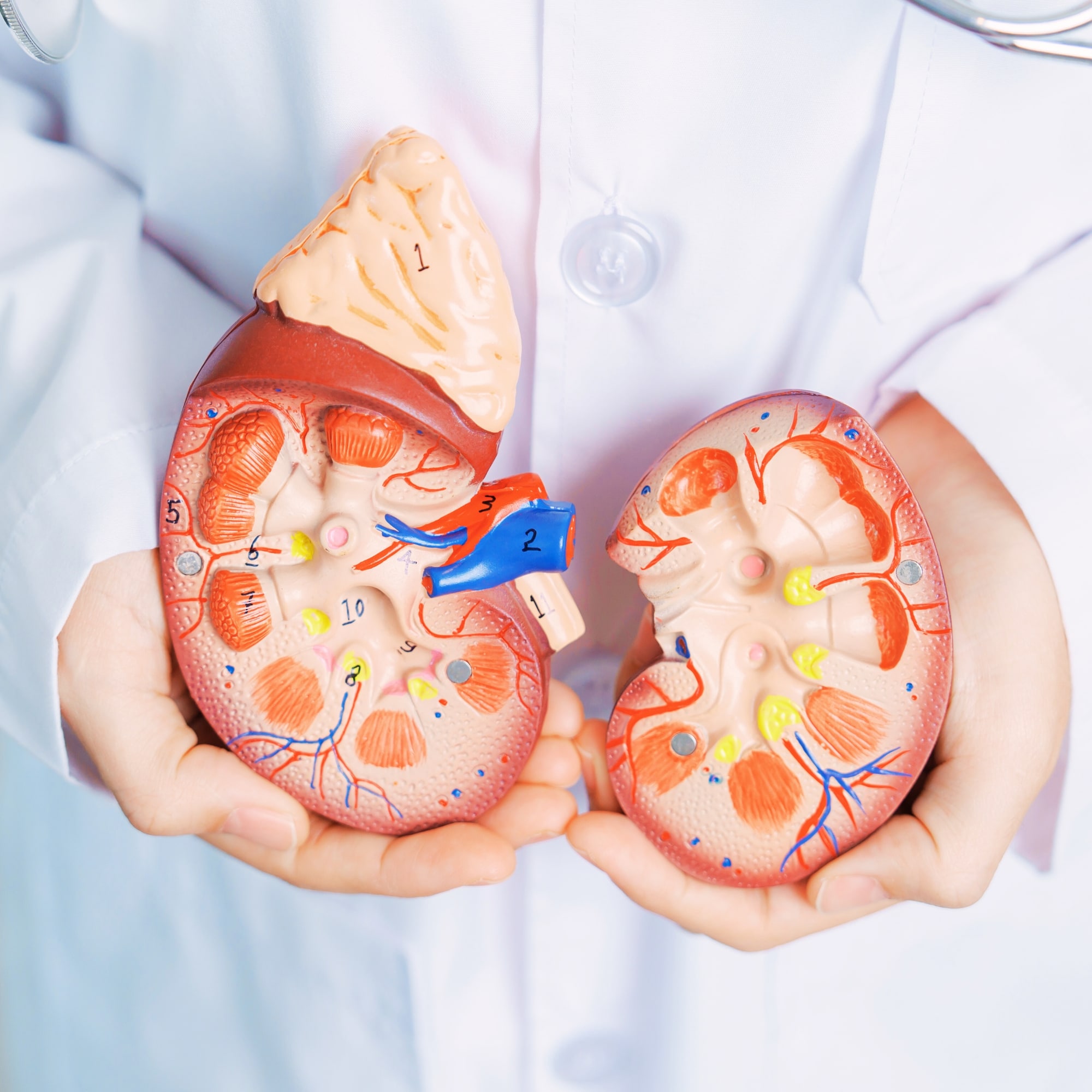Articles

Chronic Kidney Failure
Chronic Kidney
Failure
Chronic kidney failure
is a long-term condition characterized by a gradual and progressive
decline in kidney function. It is classified into five stages based
on the glomerular filtration rate (GFR). This condition results in the accumulation
of toxins, fluids, and electrolytes in the blood.
Symptoms of Chronic
Kidney Failure
Kidney failure occurs
when a disease prevents the kidneys from functioning properly over months or
years. The cumulative damage leads to decreased kidney performance
and chronic disease.
Symptoms may develop
slowly over time, and include:
- Decreased urine output
- Nausea and vomiting
- Loss of appetite
- Fatigue and weakness
- Sleep disturbances
- Decreased mental clarity
- Muscle cramps
- Itching
Nutrition for
Chronic Kidney Failure Patients
The diet is typically:
- Low in protein and salt
- Moderate in fats
- Adequate in carbohydrates to maintain body weight
Key dietary
recommendations:
- Avoid high protein intake in the early stages to reduce stress
on the kidneys.
- Limit protein intake in advanced stages to prevent
accumulation of nitrogenous waste, which may cause:
- Nausea
- Fatigue
- Vomiting
- Metallic taste in the mouth
- Loss of appetite
- Minimize plant-based proteins such as:
- Lentils
- Fava beans
- Lupin beans
- White beans
- Avoid adding salt and salt substitutes to maintain blood pressure and fluid
balance; use herbs and lemon instead.
- Consume sufficient carbohydrates such as:
- White bread
- Rice
- Pasta
- Honey
- Jam
- Use liquid oils and avoid solid fats like ghee and
butter.
- Reduce phosphorus-rich foods such as:
- Legumes
- Nuts
- Chocolate
- Cheese
- Wheat bran
To Reduce Nausea
and Loss of Appetite:
- Eat small, frequent meals instead
of large ones.
- Avoid drinking water with meals.
- Eat food cold, and use lemon to
enhance flavor.
- Choose plain toast and unsalted
crackers.
L. Kathleen Mahan, Janice L. Raymond (2017).Krause’s Food and the nutrition care process (14th editions
